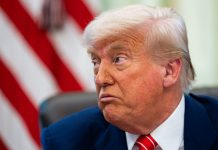As Chinese ‘Detention Camps’ in Xinjiang have been widely criticized, Indian-origin journalist Megha Rajagopalan was awarded the Pulitzer Prize in the ‘International Reporting’ category for her Xinjiang series.
Over the years, China has drawn flak from the global community over what is seen as “detention camps” in the Uighur Muslim-dominated Xinjiang province.
- Watch: The Ultimate Dogfight Between US & Russian Fighter Jets Over A ‘Top-Secret’ Air Base In Nevada
- 30 Times Faster Than Speed Of Sound: Is China Really Winning The Hypersonic Race With Its JF-22 Wind Tunnel?
In 2018, Beijing accepted the existence of the camps in Xinjiang but termed these as part of the government’s anti-terrorism and de-radicalization efforts in the region.
The rising economic clout has made many countries apprehensive of publicly taking a position against China on the issue. Now, with a series on Xinjiang winning the prestigious Pulitzer Prize, the debate will probably gain new momentum.
London-based Rajagopalan’s reports investigated an entire infrastructure network of prisons and camps in China’s Xinjiang province.
Chinese ‘Detention Camps’ In Xinjiang
What the world knows as the Xinjiang internment camps, the Chinese government calls them Xinjiang Vocational Education and Training Centers. These camps are operated by the government of the Xinjiang Uygur Autonomous Region and the provincial committee of the Chinese Communist Party (CCP).

Xinjiang, located in northwestern China, is home to about 12 million Uyghurs, mostly Muslims. The Uyghurs see themselves as similar to their Central Asian neighbors, both culturally and ethnically.
Since the 1990s, separatist sentiments had been on the rise among the Uyghur population, which had been continuously suppressed by the Chinese authorities, global human rights agencies said.
In a recent report, the New York-based Human Rights Watch states that it recognized the “systematic repression of religion.. in Xinjiang as a matter of considered state policy” as early as 2005.
- At €7.8B, Why Indian Rafale Jets Are ‘Double The Cost’ Than Egyptian Rafales?
- Why Did Netizens ‘Mock’ Nigeria For Importing JF-17 Jets From Pakistan?
The systematic repression included arrests, torture, and execution of activists accused of “separatist activities”. The suppression significantly increased over the years, and was justified by the Chinese government as its steps on”‘global war of terror”, and in 2014, Chinese President Xi Jinping launched “People’s War on Terror”.
The exact number of people detained is unknown, with estimates putting the number between 100,000 and 1 million.
Another international human rights group, Amnesty International, recently called out the human rights abuses in Xinjiang, a “dystopian hellscape where brainwashing and torture in camps are commonplace”.
WATCH: US Shoots ‘Drone With A Drone’ Using High Powered Microwaves
The 160-page report titled, ‘Like We Were Enemies in a War: China’s Mass Internment, Torture, and Persecution of Muslims in Xinjiang’ claims that the “Uighurs, Kazakhs and other predominantly Muslim ethnic minorities in China’s Xinjiang Uighur Autonomous Region (XUAR) face systematic state-organized mass imprisonment, torture, and persecution amounting to crimes against humanity”. China dismissed this as a “record of lies”.
Amnesty International’s report was followed by a phone call between US Secretary of State Antony Blinken and the Chinese Communist Party’s top foreign affairs officer Yang Jiechi. Speaking on a range of issues, Blinken reportedly raised apprehensions about the “ongoing genocide and ethnic cleansing” against the Muslim Uyghurs in Xinjiang.
There is also speculation that US President Joe Biden would urge the world leaders attending the ongoing G-7 Summit in Britain to speak together on the issue of forced labor and internment camps for the Uyghur Muslims and other ethnic minorities in China’s Xinjiang.
Last month, the Nordic-Baltic countries — Denmark, Estonia, Finland, Iceland, Latvia, Lithuania, Norway, and Sweden had issued a joint statement on the human rights violations of the Uyghurs.
Islamic Cause or National Interest – Saudi Arabia Makes Its Priority Very Clear
In February this year, Canada’s House of Commons declared China’s action against its Uyghur minority as a genocide. This made Canada the only country after the US to identify China’s actions in Xinjiang as ‘genocide’.
No ‘Detention Camps’ In Xinjiang- China Responds
China has always rubbished the claims of human rights abuses in the province of Xinjiang.
In 2020, a white paper was released by the Chinese government, which stated that the “vocational training” being imparted in Xinjiang has increased job opportunities and has been helpful in fighting poverty in the region.

China maintains that the “vocational education camps” are required in the province to counter the threats of terrorism and to help the people to move out of poverty. China states that the camps impart people with language skills like written and spoken Mandarin, other labor skills, and “knowledge of urban life”.
The governments’ white paper stated, “Xinjiang has built a large knowledge-based, skilled and innovative workforce that meets the requirements of the new era”.
Also in February, Wang Yi, the state councilor and foreign minister, in a statement to the UN Human Rights Council had stated that China’s counter-terrorism measures were according to the law, and that because of the camps in Xinjiang the province is able to enjoy “social stability and sound development” without any “terrorist case”.
Allies Support China Over Xinjiang
Since the 1950s, Pakistan has been a safe destination for the migrant Uyghurs from Xinjiang. Till the 1970s, thousands of Uyghur Muslims immigrated to Pakistan and received Pakistani citizenship.
After the Chinese crackdown on the Uyghur community began in the 1990s, the fate of the Uyghur immigrants in Pakistan also underwent a change.
According to estimates, Pakistan extradited 35 Uyghur students and militants from the country from 1997 to 2016.
In 2015, Pakistan joined the China-Pakistan Economic Corridor (CPEC), which coincided with Pakistani authorities closing down schools and cultural organizations of the Uyghur communities.
Pakistan has also refrained from publicly denouncing China’s actions in Xinjiang, possibly due to the close economic and defense ties between the two countries. In 2019, Pakistani Prime Minister Imran Khan spoke about his insufficient knowledge of the issue, when on a question on the Uyghur issue, Prime Minister Khan said he “did not know much about the issue”.
Pakistan’s close ally Turkey has also looked away from the matter. In July 2019, Turkey did not join NATO efforts to issue a joint letter to the United Nations Human Rights Council’s 41st session against China’s “mass arbitrary detentions and related violations”.
Turkey’s growing partnership with China may be a reason why it is turning a blind eye to the plights of Uighur Muslims. China is seeking to position Turkey as a vital cog in its Belt and Road Initiative (BRI). Also, Chinese investments in and around Istanbul have increased manifold in recent years.




